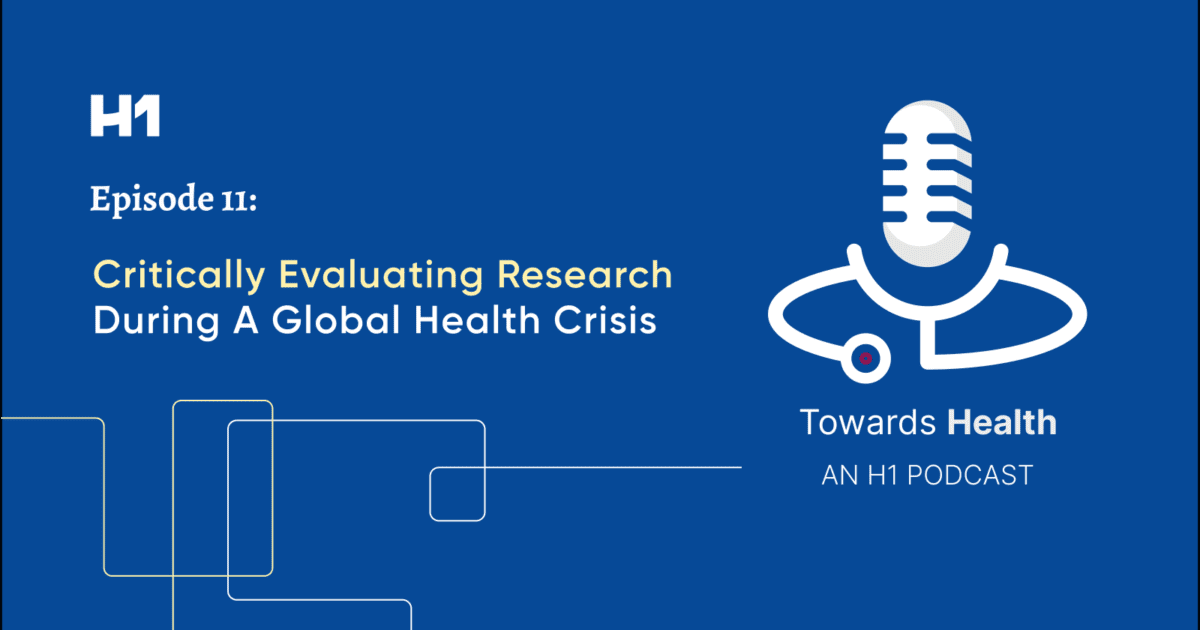
Critically Evaluating Research During a Global Health Crisis
The role of expert opinion and peer review in assessing and navigating the immense COVID-19 research output and scientific literature.
In late 2019 a novel coronavirus, SARS-CoV-2 was identified and what resulted was a global pandemic of such magnitude, governments, global institutions and healthcare systems were overwhelmed by the consequences. To date (Jan 2023), 660+ million cases of COVID-19, the respiratory illness caused by the virus, have been identified and 6+ million deaths have been reported to the World Health Organization. Since the development of COVID-19 vaccines, over 13 billion doses have been administered worldwide.
At the same time the pandemic was taking hold across the globe, the scientific, medical and pharmaceutical communities were working collaboratively and at pace to understand and tackle the disease. Research teams were variously occupied with identifying the origin of the virus, sequencing its genome, understanding modes of transmission, identifying symptoms and comorbidities, developing effective diagnostics, monitoring mutations and subsequent new strains, developing effective therapies and treatment regimens for those with the disease, creating the all-important vaccines to prevent or minimize onset of severe illness and the observing, recording and analysis of the societal and economic impact of the disease, including mental and public health outcomes, across regions, countries and populations.
Evaluating an Ocean of Research
The sheer volume of scholarly output the collective research effort generated was as unprecedented as the pandemic itself. Various estimates suggest that between 100,000 – 200,000 articles about the pandemic were published by scientists in 2020 alone. Pre-prints (articles not yet peer reviewed) also increased as researchers strove to share their findings as quickly as possible.
As is typical across research, the quality of studies varied widely but compounded by the scale of the data output, it became an onerous task to identify and keep track of the pivotal research and results that were likely to have the greatest impact in overcoming the disease and controlling the pandemic. In addition, the role of social media as a vehicle for sharing and amplifying research outcomes, irrespective of quality or veracity, provided another challenge in terms of filtering the research.
How Our Faculty Navigates the Research
In this episode of Towards Health, two scientific experts in infectious diseases discuss how they navigated the literature and in doing so were able to make valuable contributions to Faculty Opinions with their identification and analysis of the most significant studies.
In a fascinating insight into the pandemic from the perspective of scientists, our guests and Faculty Members, Anthony Harries, Honorary Professor at the London School of Hygiene and Tropical Medicine and Senior Advisor at The International Union Against Tuberculosis and Lung Disease and Gavin Koh, Product Lead at AstraZeneca share:
- their personal realizations of the scale of the threat of the disease in the early months of 2020 and the likely consequences
- the impact of a rapidly evolving situation on research priorities
- their motivation to ensure good science was being surfaced and highlighted through platforms like Faculty Opinions
- their assessment of the impact of the volume of research on the publishing ecosystem
Faculty Opinions COVID-19 content continues to be freely available and is regularly updated as significant new findings emerge.
 HCP Universe
HCP Universe Trial Landscape
Trial Landscape